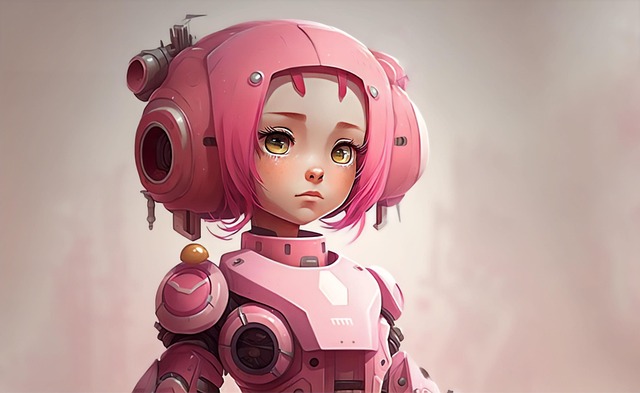# The Evolution of AI Technology: Bridging Innovation and Everyday Life for a Smarter Future
Artificial Intelligence (AI) has undergone a remarkable transformation since its inception, evolving from theoretical concepts into practical applications that permeate various aspects of our daily lives. This evolution reflects not only technological advancements but also a profound shift in how society interacts with machines. As we explore the journey of AI technology, it becomes evident that its impact is both profound and pervasive, shaping the future of industries, economies, and individual experiences.
## The Historical Context: From Concept to Reality
In the early days of computer science, the notion of AI was largely relegated to academic circles. Researchers like Alan Turing and John McCarthy laid the groundwork for what would eventually become a burgeoning field. Turing’s seminal work on the concept of a “universal machine” and the Turing Test established a framework for evaluating machine intelligence. By the mid-20th century, the first AI programs were developed, demonstrating rudimentary problem-solving capabilities. However, these early systems were limited by the computational power of the time and often fell short of practical applications.
A significant turning point occurred in the 1980s with the advent of expert systems, which utilized rule-based algorithms to mimic human decision-making in specific domains. Industries began to recognize the potential of AI to enhance efficiency and accuracy. Nevertheless, the limitations of these systems led to a period known as the “AI winter,” characterized by reduced funding and interest. It wasn’t until the resurgence of machine learning algorithms in the 21st century, fueled by increased computational power and the availability of vast datasets, that AI began to flourish once more.
## Transformative Technologies: Machine Learning and Beyond
Machine learning (ML) has emerged as a cornerstone of modern AI, enabling systems to learn from data rather than relying solely on predetermined rules. This paradigm shift has allowed for the development of sophisticated algorithms capable of recognizing patterns, making predictions, and adapting to new information. Deep learning, a subset of ML, utilizes neural networks to process complex datasets, leading to breakthroughs in image and speech recognition, natural language processing, and autonomous systems.
The proliferation of data generated by the digital age has been instrumental in this evolution. With billions of users generating content online, AI systems can now analyze vast amounts of information to derive insights and improve decision-making. As a result, industries such as healthcare, finance, and transportation have begun to harness the power of AI to optimize operations, enhance customer experiences, and drive innovation. For instance, diagnostic algorithms in healthcare can analyze medical images with remarkable accuracy, assisting doctors in identifying conditions more swiftly and reliably.
Moreover, AI’s integration into everyday life is evident through smart devices and applications that enhance convenience and efficiency. Voice-activated assistants like Amazon’s Alexa and Apple’s Siri exemplify how AI can simplify tasks and provide information on demand. These innovations not only reflect technological progress but also signify a cultural shift towards greater reliance on intelligent systems in our daily routines.
## The Future Landscape: Ethical Considerations and Societal Impact
As AI technology continues to advance, the implications for society are profound and multifaceted. Ethical considerations surrounding AI deployment have become increasingly pressing, particularly in areas such as privacy, bias, and accountability. The algorithms that power AI systems can inadvertently perpetuate existing biases present in training data, leading to decisions that disproportionately affect marginalized communities. Addressing these issues requires a concerted effort from developers, policymakers, and ethicists to establish guidelines and frameworks that ensure fairness and transparency.
Furthermore, the potential displacement of jobs due to automation raises concerns about the future of work. While AI can enhance productivity and create new opportunities, it also threatens to render certain roles obsolete. Preparing the workforce for this transition is essential, necessitating an emphasis on reskilling and upskilling initiatives that equip individuals with the skills needed to thrive in an AI-driven economy. Educational institutions and businesses must collaborate to foster a culture of lifelong learning, ensuring that workers can adapt to the evolving landscape.
On a more optimistic note, AI has the potential to address some of the most pressing challenges facing humanity. From climate change to healthcare disparities, intelligent systems can provide innovative solutions that enhance our ability to tackle complex problems. For instance, AI-driven models can optimize energy consumption in smart grids, while predictive analytics can improve disaster response efforts. As we navigate this transformative era, the focus must remain on harnessing AI’s capabilities for the greater good, fostering a future where technology serves humanity rather than undermines it.
## Conclusion: Embracing the Future of AI
The evolution of AI technology represents a remarkable journey from theoretical exploration to practical application. As we stand on the precipice of a new era, it is crucial to recognize the profound impact that AI has on our lives and the responsibilities that come with it. By fostering innovation while prioritizing ethical considerations, society can harness the power of AI to create a smarter, more equitable future.
Ultimately, bridging innovation and everyday life through AI technology requires a collaborative approach that involves stakeholders from various sectors. As we embrace the potential of intelligent systems, we must remain vigilant in addressing the challenges they pose, ensuring that the benefits of AI are accessible to all. The future is indeed bright, and with thoughtful stewardship, AI can be a powerful ally in our quest for progress and improvement.











